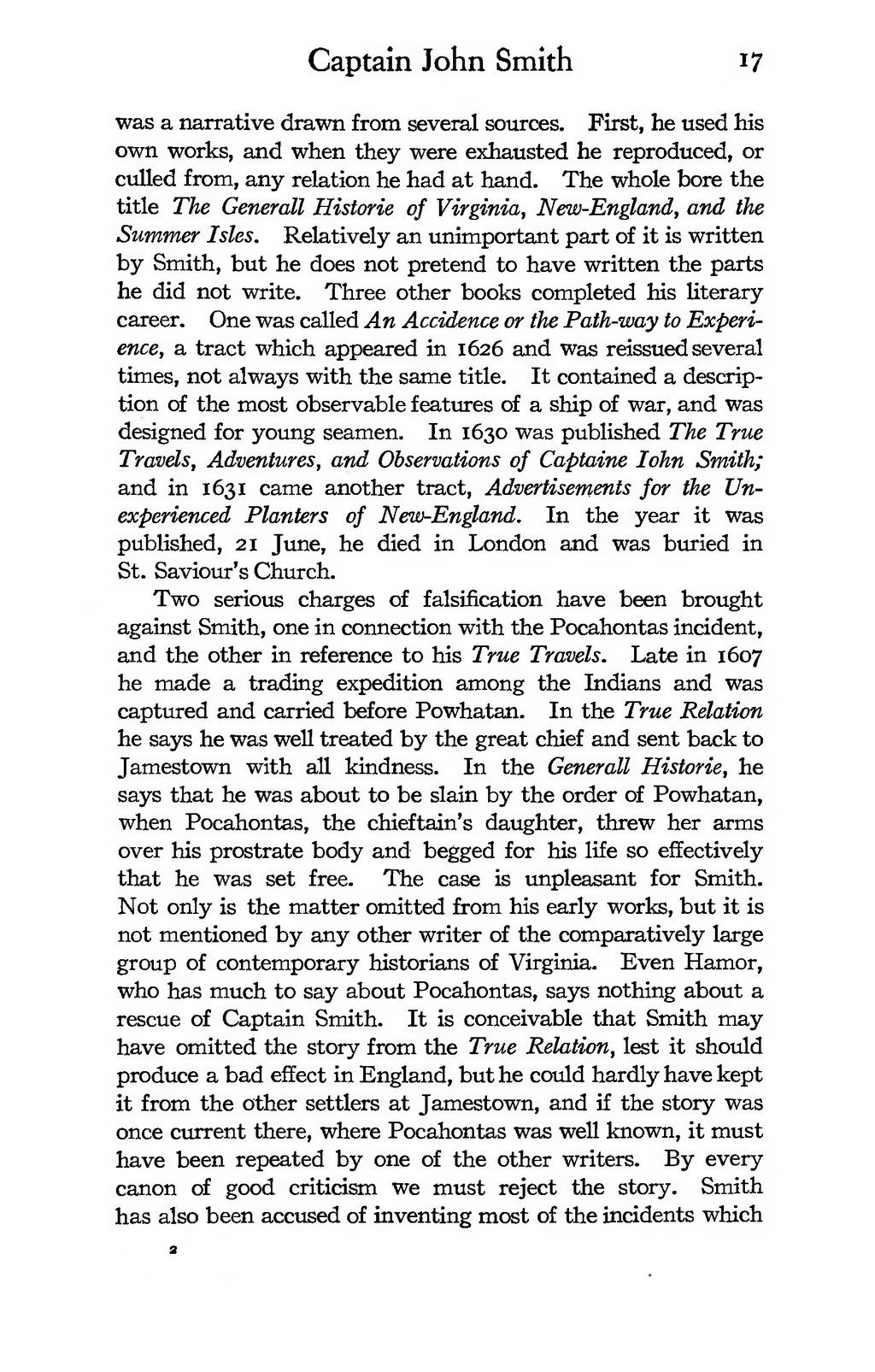was a narrative drawn from several sources. First, he used his own works, and when they were exhausted he reproduced, or culled from, any relation he had at hand. The whole bore the title The Generall Historie of Virginia, New-England, and the Summer Isles. Relatively an unimportant part of it is written by Smith, but he does not pretend to have written the parts he did not write. Three other books completed his literary career. One was called An Accidence or the Path-way to Experience, a tract which appeared in 1626 and was reissued several times, not always with the same title. It contained a description of the most observable features of a ship of war, and was designed for young seamen. In 1630 was published The True Travels, Adventures, and Observations of Captaine John Smith; and in 1631 came another tract, Advertisements for the Unexperienced Planters of New-England. In the year it was published, 21 June, he died in London and was buried in St. Saviour's Church.
Two serious charges of falsification have been brought against Smith, one in connection with the Pocahontas incident, and the other in reference to his True Travels. Late in 1607 he made a trading expedition among the Indians and was captured and carried before Powhatan. In the True Relation he says he was well treated by the great chief and sent back to Jamestown with all kindness. In the Generall Historie, he says that he was about to be slain by the order of Powhatan, when Pocahontas, the chieftain's daughter, threw her arms over his prostrate body and begged for his life so effectively that he was set free. The case is unpleasant for Smith. Not only is the matter omitted from his early works, but it is not mentioned by any other writer of the comparatively large group of contemporary historians of Virginia. Even Hamor, who has much to say about Pocahontas, says nothing about a rescue of Captain Smith. It is conceivable that Smith may have omitted the story from the True Relation, lest it should produce a bad effect in England, but he could hardly have kept it from the other settlers at Jamestown, and if the story was once current there, where Pocahontas was well known, it must have been repeated by one of the other writers. By every canon of good criticism we must reject the story. Smith has also been accused of inventing most of the incidents which
